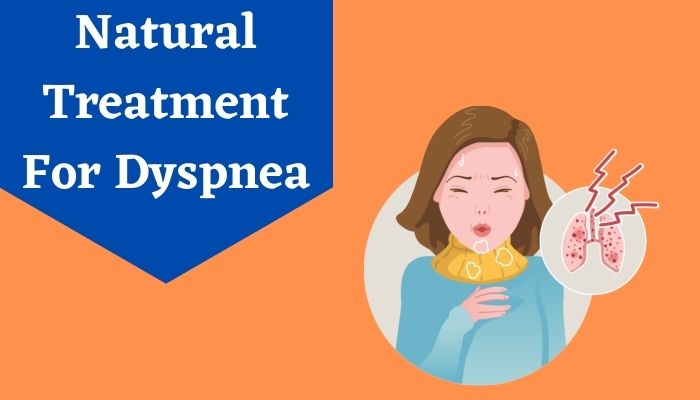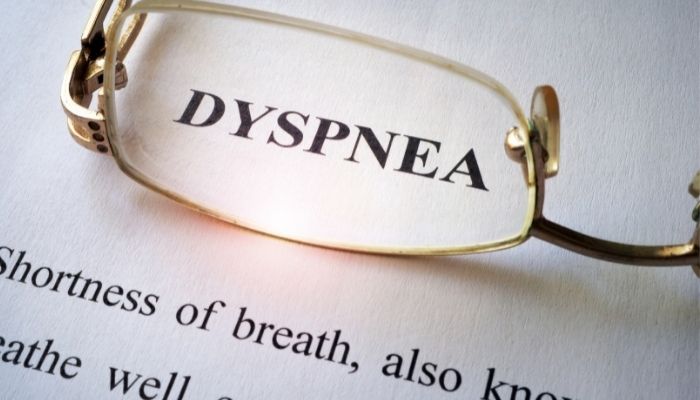Mr. Mahajan is a 47-year-old-businessman who lives in Hyderabad. Over the past few weeks, he has been experiencing difficulty breathing and suffocation. At first, he thought it could be due to fatigue and age. But when he got himself diagnosed, his doctor told him that these are symptoms of dyspnea. The doctor advised him with some treatment for breathlessness or dyspnea and told him to leave aside anxiety of any type to get rid of this problem.
So, what is dyspnea and what are its causes? In medical terms, dyspnea is a term given to shortness of breath, where one feels air hungry and suffocated. Let us help you identify the best dyspnea treatment and dyspnea medicine. So, stay tuned and read on,
What is Dyspnea?
Shortness of breath or dyspnea is a feeling of congestion in the chest, where one feels the need to take as much air as possible to breathe. Many people get confused between dyspnea and asthma because the symptoms are almost the same and it makes one gasp for air to breathe. Dyspnea can turn into a life-threatening health issue within no time because the difficulty to breathe can be fatal.Causes of Dyspnea
There could be an endless number of causes of dyspnea, so let us have a look at some of them:- Asthma
- Choking
- Pulmonary Embolism
- Broken Ribs
- Collapsed Lungs
- Anxiety
- Obesity
- Smoking
- Anemia
- Pneumonia
- Lung Infection
- Heart Failure
- Heart Attack
- Sudden Blood Loss
- Too Much of Blood Around Heart
- Heart Rhythm Problem
- Pregnancy
- Anaphylaxis
- Certain Medications
- Extreme Temperature
Symptoms of Dyspnea
Those suffering from dyspnea, usually show the following symptoms:- Difficulty to Breath
- Difficulty to a Deep Breath
- Chest Congestion
- Suffocation
- Gasping for Air
Dyspnea Affects Specific People
Another thing worth noting about dyspnea is that it often affects some specific groups of people like:1. Pregnant Ladies
Some studies have revealed that pregnancy hampers a woman’s breathing capacity and she may suffer from dyspnea.2. Infants
Infants are at a higher risk of dyspnea because they can inhale a foreign object. Besides, sometimes due to inflammation of the epiglottis, infants tend to suffer from dyspnea.3. Senior Citizens
Senior citizens are already suffering from some or the other health disorder, this makes them at a higher risk of suffering from dyspnea.Diagnosis of Dyspnea
Following are the list of tests that a doctor may make you undergo to diagnose dyspnea and its underlying cause:1. Physical Examination
This will include measuring the body temperature and using a stethoscope to listen to the chest congestion.2. Blood Tests
Dyspnea symptoms like anemia and other infections can be easily detected through blood tests.3. Lung Function Tests
The purpose of these tests is to check how your lungs are breathing.4. Pulse Oximetry
A finger sensor will calculate the oxygen present in your blood to detect the exact level of dyspnea.5. Chest X-Rays or CT Scans
These are the most widely used tests to diagnose the main cause of dyspnea, as these scans often detect the underlying cause of the disorder.6. Cardiopulmonary Exercise Test
Through these tests, the doctor will get to know the volume of oxygen that is breathed in and the amount of carbon dioxide exhaled out. This test is usually performed on a treadmill or a stationary bike.Treatment for Breathlessness
As part of dyspnea treatment, your doctor may prescribe you the following1. Exercise
Attaining physical fitness should be your priority if you are suffering from dyspnea. You need to focus on strengthening your lungs and heart. Sometimes the doctor will advise you to undergo cardiovascular rehabilitation to improve the symptoms.2. Oxygen Therapy
For those suffering from extreme symptoms of dyspnea, the doctors advise oxygen therapy, wherein an oxygen mark or a tube is used to allow the patient to breathe comfortably.3. Medication
In some cases, bronchodilators are advised to relax the airways. These medications are usually prescribed to those suffering from dyspnea due to asthma or COPD. The purpose of these medications is to relieve anxiety and to make space for easy breathing.Home Remedies for Shortness of Breath
1. Diaphragmatic Breathing
Trying this breathing technique can help relieve symptoms of dyspnea. You need to sit straight on a chair placing your hands on your belly. Then, try to breathe in slowly through the nose and exhale slowly while tightening your muscles. Emphasis should be more while exhaling.2. Sleeping Position
Dyspnea can be really problematic, especially when trying to sleep. So, in that case, one should seek a comfortable sleeping position to allow comfortable breathing. Just try to lay on your back and keep a pillow just between your legs and keep your head elevated by one or two pillows. Such sleeping positions prove beneficial to get relief from dyspnea while you are asleep.3. Use a Fan
An easy way to deal with short breath due to dyspnea is by using a fan to blow air towards your face. This simplified breathing and offers relief in shortness of breath.4. Drink Coffee
Another study revealed that one can relax the muscles of the airways with caffeine. Drinking a cup of coffee can help work as a dyspnea medicine for up to 4 hours.Lifestyle Changes
Besides the above-mentioned home remedies for shortness of breath, one need to change lifestyle patterns like:- Quit smoking and tobacco intake
- Manage body weight
- Avoid climbing up the stairs
- Avoid extensive heavy workouts
- Make Healthy Diet Choices
- Exercise Regularly
- Yoga and Meditation
- Avoid Allergens and Pollutants
- Avoid Extreme Temperature Changes
- Practice Relaxation Techniques

